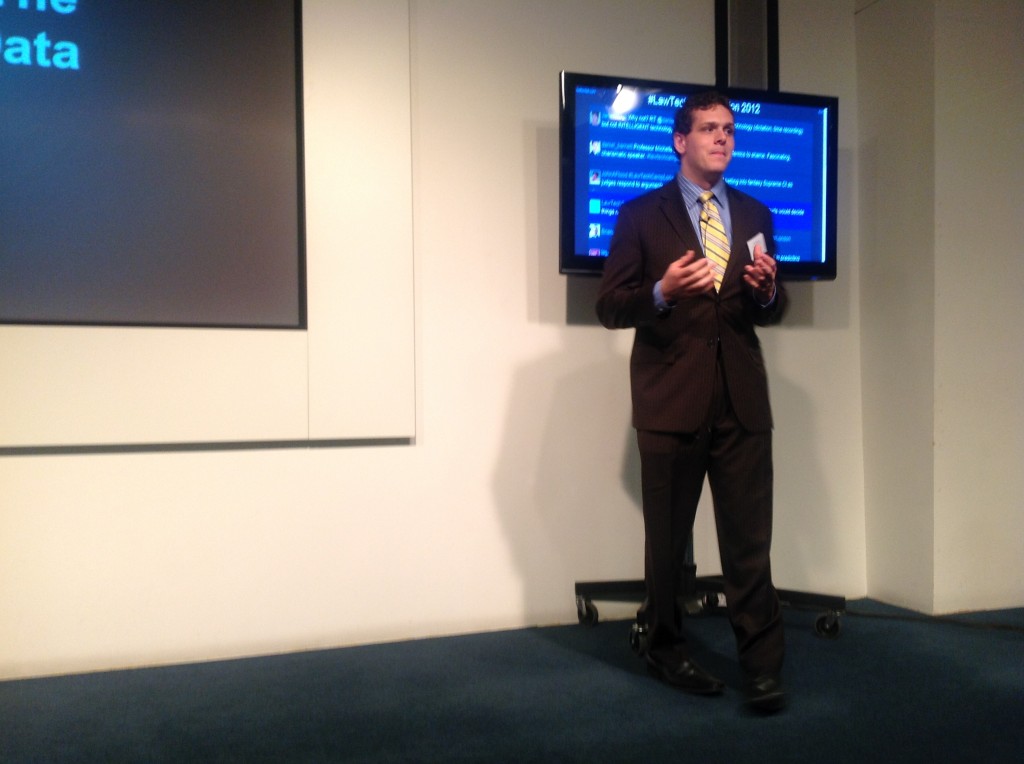 Legal Market Musings writes:
Legal Market Musings writes:
At the top end of the value chain, Josh Blackman, assistant professor at South Texas Law, recalled how FantasySCOTUS was using crowdsourcing to predict US Supreme Court judgments. At a more granular level, the Harlan Institute and others, includingThomson Reuters, were effectively transforming legal rulings into countless data points, turning the “qualitative into the quantitative”. By capturing data on legal arguments, judges’ decision histories, lawyers’ success ratios and numerous other factors, the end result of this effort was clear: ultimately, technology will allow client to explain their situation to a computer interface, which will tell them whether, based on law and precedent, it would be likely that they would win a legal dispute. Think the iPhone’s Siri, but offering legal advice.If this sounds like fantasy, several speakers pointed out that IBM’s super-computer, Watson, had recently beaten two past champions of US game-show Jeopardy in a special edition of the show. If computers can be more effective at answering quiz show questions than expert humans, then why can’t they be better than lawyers at offering legal advice?
Josh Blackman, Asst. Professor, South Texas Law, Creator of FantasySCOTUS.net, Harlan Institute
Disruptive technology is changing how we do law. ‘Law’s Information Revolution’ involves disruptive technology. People can make predictions – this crowd-sources the prediction market, based on ‘The wisdom of the crowds’ by James Surowiecki. Most people involved with the judicial system interact with the lower courts. There are inherent problems therefore in crowd-sourcing, therefore. Assisted decision-making can instead help make decisions, with the help of ‘Super Crunchers’ (Ian Ayres). Individuals have capabilities which are limited. In the US, we use ‘PACER‘ which is not free, and close sourced. It’s a very good money-maker, but the information is there. Law is like data, and there are facts and trends lying there, like “The Matrix”. Another example is Harland which has used the PACER data which can track the timeline which we have developed, and events can be linked easily. For example, one could ask what cases are Google currently involved in? It would be very difficult to track this without such a platform. Take another example: imagine if you have an app where you could ask to ask, “I want to draft to draft a contract which…” or “My landlord won’t fix my problem” – regarding the latter, the app could produce various options.